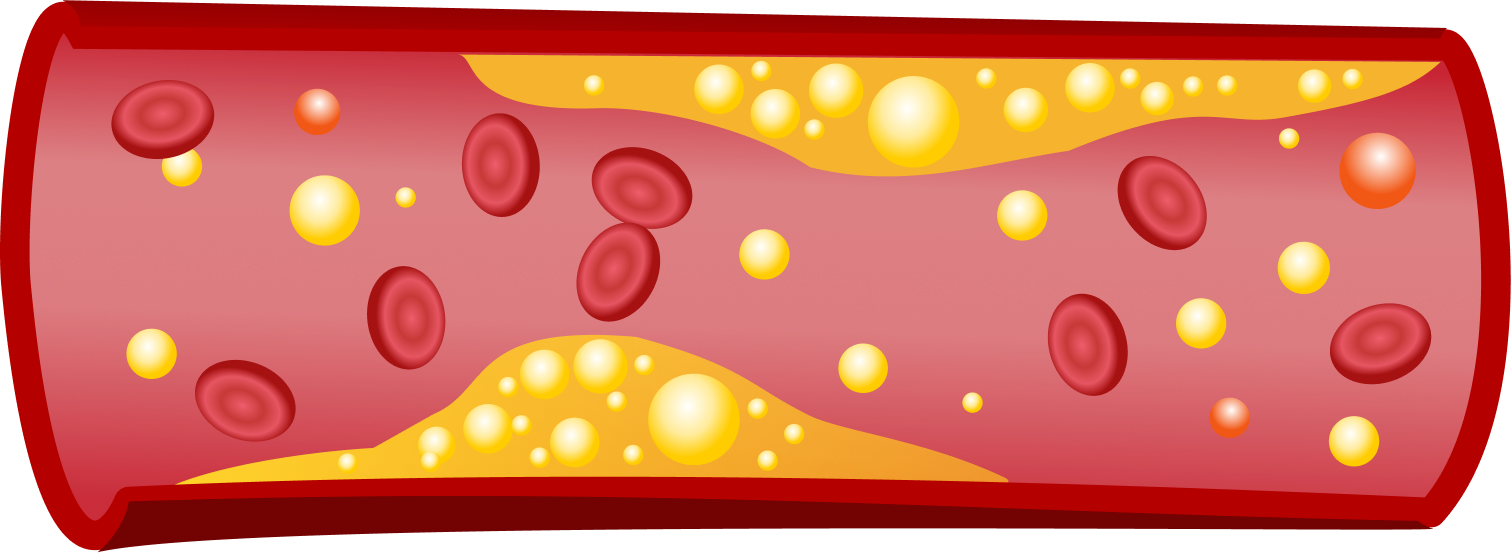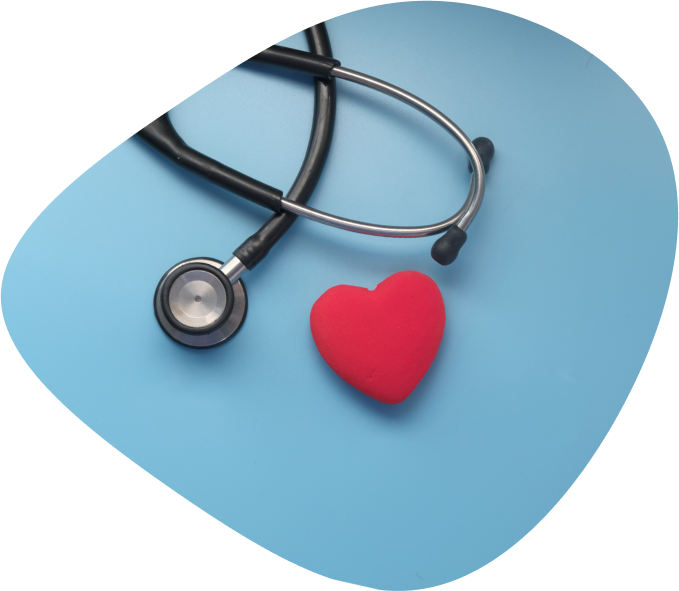What is cholesterol?
Cholesterol is a waxy substance, which is an essential part of every cell in our body. It has many important functions, such as being a building component of bile acids, hormones and vitamins. Cholesterol is mainly produced in the body, but we also absorb it from animal-sourced foods such as meat, cheese, butter, and eggs.
High density lipoprotein cholesterol is the ‘good’ type of cholesterol. It helps to remove excess cholesterol from the bloodstream and returns it to the liver where it is broken down and passed out of the body.
HDL
LDL


LDL-cholesterol: keep it low!
Cholesterol is essential for the normal function of the body at appropriate levels, but high LDL-cholesterol is a major risk factor for cardiovascular disease (CVD). When there is too much LDL-cholesterol in the blood, it builds up in the walls of the arteries. Over time, this build-up narrows, or ‘hardens,’ the arteries so that blood flow to the heart is slowed down or blocked. Since blood transports oxygen to the heart, an inadequate supply of blood to the heart may cause chest pain; if the blood supply to a portion of the heart is completely cut off by a blockage, then the result is a heart attack.
It is well established that elevated blood LDL-cholesterol is independently associated with atherosclerosis and increased risk of heart disease. The causal relationship between LDL-cholesterol and heart disease risk is supported by both epidemiological and interventional studies (European Society of Cardiology/European Atherosclerosis Society Guidelines; Wilson et al). However, a high blood LDL-cholesterol level itself does not cause symptoms, so many people are unaware that their cholesterol level is too high – or that this puts them at greater risk for developing cardiovascular disease.

Cardiovascular disease: some key facts
According to the World Health Organization (WHO), cardiovascular diseases are the number one cause of death globally. In 2019, an estimated 17.9 million people died from CVDs, which represented 32% of all global deaths. Of these deaths, 15.4 million were due to ischaemic heart disease and stroke alone.
Source : WHO: Cardiovascular diseases (CVDs); WHO: Global Health Estimates
1/3
of ischemic heart disease due to raised cholesterol
4.5%
of total deaths are due to raised cholesterol
29.7 M
disability adjusted life years lost due to raised cholesterol
Hear from the experts
Learn more about the link between blood cholesterol and heart disease.
Scientific evidence
Long-term association of low-density lipoprotein cholesterol with cardiovascular mortality in individuals at low 10-year risk of atherosclerotic cardiovascular disease
This large long-term study has shown that raised levels of LDL-C (and also non HDL-C) increases the risk of CVD mortality even in people with a low 10-year CVD risk…
Normal LDL-cholesterol levels are associated with subclinical atherosclerosis in the absence of risk factors
Individuals without cardiovascular (CV) risk factors are normally considered low risk for atherosclerosis and cardiovascular disease (CVD) and…
LDL-cholesterol-lowering effect of plant sterols and stanols across different dose ranges: a meta-analysis of randomised controlled studies
Phytosterols (PS, comprising plant sterols and plant stanols) have been proven to lower LDL-cholesterol concentrations. The dose–response…

